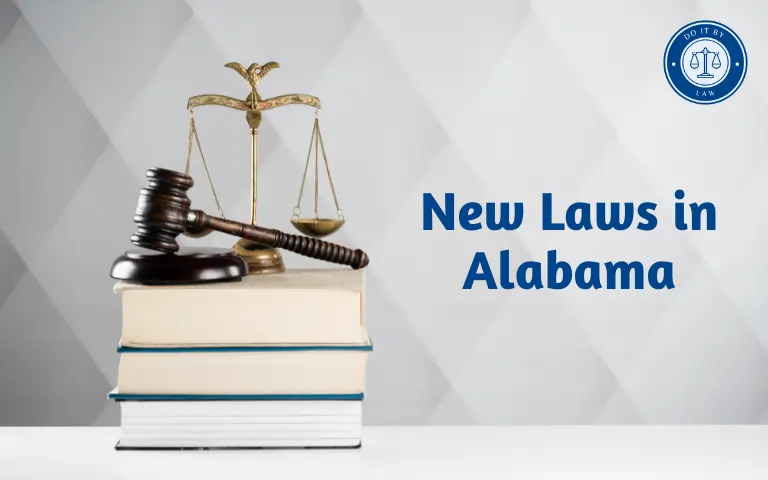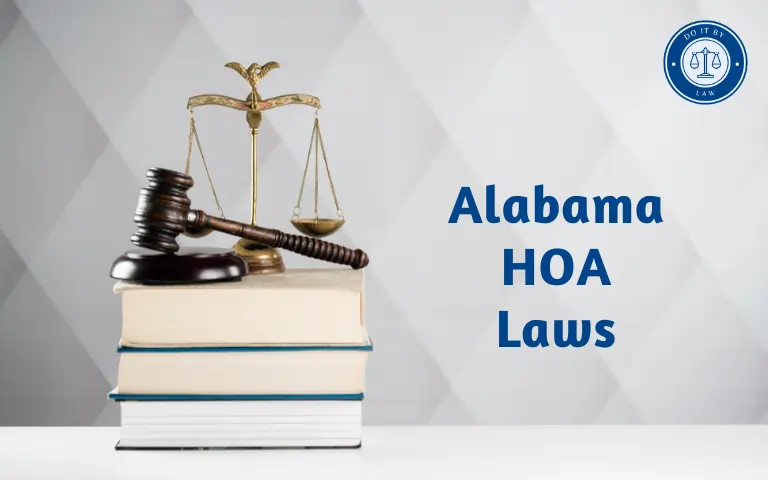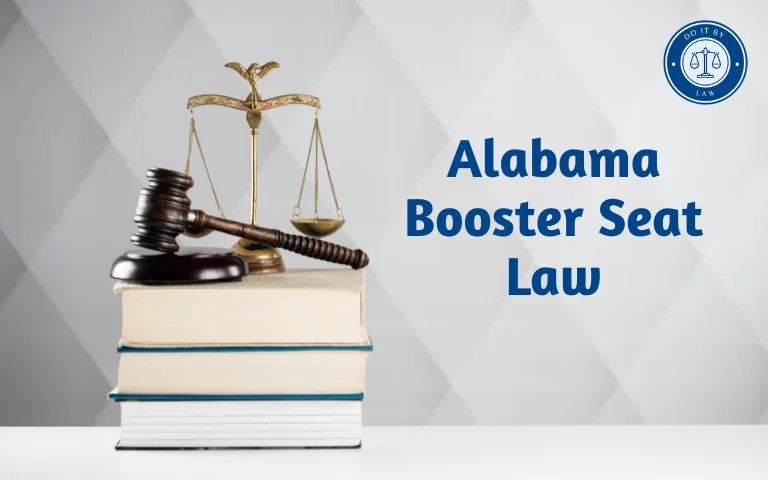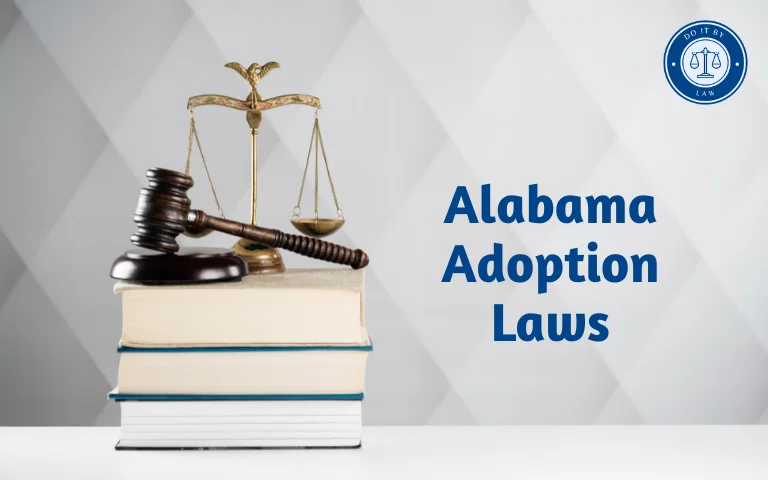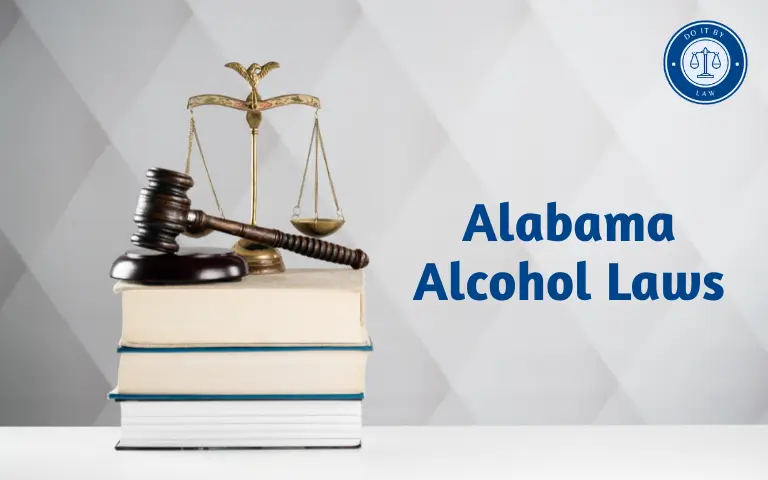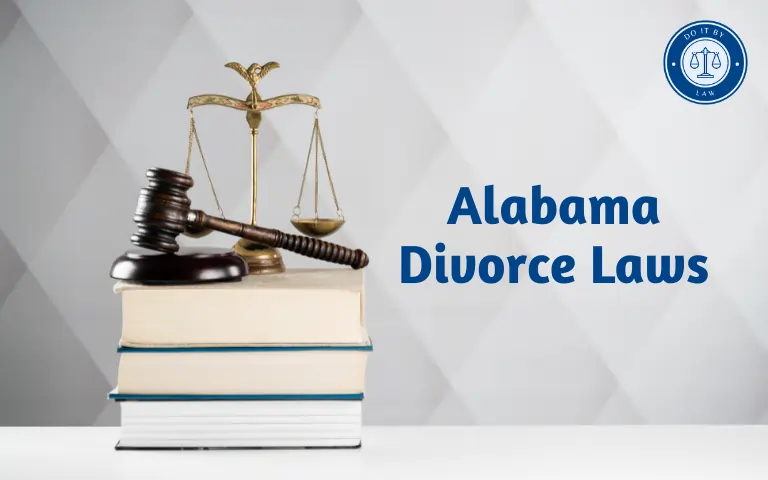New Laws in Alabama 2023: What You Need to Know
The Alabama legislature has enacted several new laws that will go into effect in 2023. This article provides a comprehensive overview of the key new laws in Alabama, including when they were passed, who they apply to, what the main provisions are, and more. Keep reading to learn about the major changes coming to Alabama law this year.
Revisions to Alabama Criminal Law and Procedure
Alabama made revisions to various parts of the state’s criminal law and procedure through the passage of SB228/HB272. This new law contains numerous provisions that impact how criminal cases are handled in the state.
Enactment of Law
The Alabama Legislature passed SB228/HB272 during the 2022 legislative session, and the legislation was signed into law by Governor Kay Ivey in April 2022. Most provisions will take effect on January 1, 2023.
Purpose of Revisions
According to the Legislature, the purpose of SB228/HB272 is to update and improve Alabama’s criminal law and procedures to reflect current best practices. The reforms are aimed at enhancing public safety, improving the administration of justice, reducing recidivism rates, and managing correctional populations.
Key Provisions and Changes
Some of the main changes contained in SB228/HB272 include:
- Modification of rules for Habitual Offender Law to allow some non-violent offenders to avoid mandatory minimum sentences.
- Changes to parole and probation procedures, such as limiting technical revocations for minor violations.
- Adjustments to earned time credit rules to allow well-behaved inmates to reduce their sentences through good conduct.
- Expansion of eligibility for pre-trial diversion programs.
- Increased penalties for domestic violence, burglary, robbery, and drug trafficking crimes.
- New mandatory minimum sentences for assaulting law enforcement officers.
- Allowing past convictions for certain felonies to be expunged in some cases.
Application of New Laws
Most of the criminal law and procedure reforms in SB228/HB272 will apply statewide to all defendants, inmates, and criminal cases in Alabama. The laws will impact law enforcement agencies, prosecutors, judges, jails, probation officers, parole boards, and the prison system.
Penalties for Violations
The penalties for violating Alabama’s criminal laws are outlined in the specific statutes defining each offense. Most felonies are punishable by fines up to $15,000 and prison terms ranging from 1 year to life. Misdemeanors generally carry fines of up to $6,000 and jail terms of up to 1 year. Violating any new criminal laws or procedures established through SB228/HB272 could subject defendants and offenders to these statutory penalties.
Recent and Proposed Changes
As SB228/HB272 was just enacted in 2022, there are no definitive plans to amend the law yet. However, supporters and critics will likely propose tweaks and changes once the reforms go into effect and real-world impacts become clearer. Any revisions would need to pass the Alabama Legislature again.
Controversies and Challenges
Some criminal justice reform advocates argue the changes in SB228/HB272 don’t go far enough. For example, Alabama will still have one of the highest incarceration rates in the nation even after the implementation of the new laws. Others believe the bill expands parole and earned time credits too liberally for violent offenders. Additional debate centers around the cost of the reforms and whether law enforcement is receiving adequate funding and support. Effective implementation poses challenges as well given the scale of changes.
New Voting Laws Under SB319
Alabama enacted significant changes to the state’s election laws in 2021 through the passage of SB319. Most provisions took effect immediately, though some will impact elections starting in 2022 and 2023.
When SB319 Was Passed
The Republican-controlled Alabama Legislature approved SB319 in May 2021, following the 2020 elections in which there were heightened concerns about election integrity and voting processes. It was signed into law by Governor Kay Ivey soon after.
Purpose of New Voting Laws
According to supporters, the purpose of SB319 is to help restore public confidence in Alabama’s elections, implement best practices for election security, reduce voter fraud, and ensure fairness and consistency statewide. Critics argue the law is an unnecessary barrier to voting rights.
Key Provisions of SB319
Some notable provisions of SB319 include:
- Stricter voter ID requirements for both in-person and absentee voting
- Elimination of curbside voting
- Ban on giving food or water to voters waiting in line
- Expansion of poll watcher access and powers
- Prohibition on accepting private money for election administration
- New restrictions on drop boxes and ballot curing
- Earlier deadlines for absentee ballot applications
- Mandatory retention of digital images of paper ballots
Application and Enforcement
SB319 applies to all federal, state, and local elections held in Alabama. The Alabama Secretary of State serves as the state’s chief election official responsible for guidance, implementation, and enforcement. Local probate judges, boards of registrars, and poll workers must also enforce the new laws. Violators are subject to civil penalties of up to $15,000.
Impact on 2022 and 2023 Elections
Several key provisions of SB319 are expected to impact Alabama’s 2022 midterm elections, as well as 2023 municipal elections. For example, the new proof of ID requirements, limits on drop boxes, and changes to absentee voting rules will shape how voters cast ballots in upcoming races. Processing absentee ballots may take longer given the volume of required signatures to verify.
Recent Legal Challenges
Civil rights organizations immediately challenged SB319 in federal court, alleging the law violates First and Fourteenth Amendment rights and Section 2 of the Voting Rights Act. In October 2021, a federal judge blocked certain provisions including the ban on curbside voting. However, other controversial elements currently remain in effect pending further litigation. Additional lawsuits are likely as the laws continue being implemented over upcoming election cycles.
Ongoing Controversies
There are active debates around whether SB319 amounts to unacceptable voter suppression versus reasonable protections against fraud. Disagreements also persist around which specific provisions are legal, fair, and equitable. Ensuring equal ballot access, particularly for marginalized groups, remains a central concern. Effective public education and poll worker training on the extensive new rules present a significant implementation challenge as well.
Changes to Alabama Ethics Laws Through HB331
Alabama strengthened its ethics laws for public officials, government employees, and lobbyists through the passage of HB331 in 2022. Most provisions take effect in January 2023.
Enactment of HB331
HB331 was introduced in the Alabama House of Representatives in February 2022. It ultimately passed both chambers of the Republican-controlled Legislature in March and was signed into law by Governor Kay Ivey.
Goals of New Ethics Legislation
According to legislative sponsors, the goal of HB331 is to improve accountability, transparency, and oversight of government ethics in Alabama. Recent high-profile corruption scandals prompted calls for ethics reforms from activists, media outlets, and some elected officials.
Key Changes Under HB331
Major changes contained in HB331 that will impact state and local government ethics include:
- Expanded financial disclosure requirements for public officials and senior government employees, including more detail about income sources, gifts, contracts, and business affiliations.
- New “cooling-off” period prohibiting elected officials from taking jobs to lobby the legislature for 2 years after leaving office.
- Increased registration and reporting requirements for lobbyists and new limits on where lobbyists can spend on legislators.
- Creation of a Public Information Unit and additional resources for the Alabama Ethics Commission to conduct investigations and enforce violations.
- Stiffer civil penalties and fines for ethics violations.
Application of New Ethics Rules
The provisions of HB331 will apply to all elected officials, government employees, lobbyists, and others covered under the Alabama Ethics Law. This includes the executive branch, legislators, judges, state and local agencies, boards of education, and more.
Penalties for Violations
Depending on the specific violation, civil penalties can range from $100 up to $25,000 under HB331. Additionally, the Ethics Commission can levy fines of up to triple the amount of any unlawful financial gain received by violators. Serious criminal violations can result in felony charges.
Ongoing Debate and Open Questions
Some government accountability advocates argue HB331 should have gone further, such as banning all gifts to officials and instituting an independent redistricting commission. Others question whether the Ethics Commission will receive sufficient resources and autonomy to vigorously enforce expanded laws. Additional amendments and improvements to Alabama’s ethics statutes are likely in future legislative sessions.
Changing Liquor Laws in Alabama Through HB176
Alabama passed legislation in 2021 that loosens certain prohibitions and restrictions on the sale of alcohol in the state. Most provisions take effect in 2023.
Passage of HB176
HB176 was introduced in the Alabama Legislature in February 2021 by Representative Terri Collins. It passed the House and Senate in May 2021 and was signed into law by Governor Ivey.
Goals of New Liquor Laws
According to proponents, modernizing Alabama’s liquor laws will promote business growth and tourism, generate tax revenue, and allow residents more flexibility. The changes bring Alabama more in line with most other states’ alcohol regulations.
Key Elements of HB176
Major changes under HB176 include:
- Allowing curbside pickup of alcoholic beverages from retailers.
- Legalizing home deliveries of liquor, wine, and beer.
- Permitting alcohol sales on Sunday beginning at 10:00 AM instead of noon.
- Allowing liquor stores to offer promotional samples to customers.
- Ending the requirement for restaurants and bars to maintain a certain percentage of food sales versus alcohol sales.
- Allowing minor patrons when accompanied by an adult.
Application of New Alcohol Rules
The provisions of HB176 will apply statewide to all businesses and individuals selling or purchasing alcohol for off-premises consumption in Alabama. This includes liquor stores, restaurants, bars, distributors, wholesalers, and general consumers aged 21 and over.
Penalties for Violations
Violating Alabama’s liquor laws can result in fines of up to $1,000 and up to 6 months in jail. Illegally selling alcohol without a license, selling to minors, driving under the influence and other violations will remain subject to these penalties.
Ongoing Controversies and Concerns
Some health and safety advocates argue loosening restrictions on alcohol access will lead to increased drunk driving, underage drinking, and addiction issues in Alabama. Law enforcement has also warned about the potential for more alcohol-related crimes and accidents. Further legislative efforts to expand alcohol sales in new ways are likely, amid opposition from certain civic and religious groups.
New Laws Impacting Alabama Schools
Alabama enacted several notable new laws affecting K-12 education in 2022 through bills like HB272, HB428, and SB184. Most provisions will take effect for the 2023-2024 school year.
Enactment Timeline
The Republican-majority Legislature introduced and passed the bills between January and April 2022. Governor Ivey signed each bill into law soon after passage.
Rationale for New School Laws
According to sponsors, the laws aim to promote school safety, improve struggling schools, increase transparency, expand education options for families, and address concerns like banned books and lessons on gender identity.
Key Provisions and Changes
Major changes impacting Alabama schools include:
- Allowing school security personnel to carry firearms after training.
- Providing additional state intervention and takeover options for habitually failing schools.
- Requiring public schools to publish library catalogs and lesson plans online.
- Easing restrictions and eligibility for charter schools.
- Prohibiting classroom instruction or assignments about gender identity through 5th grade.
- Allowing broader censorship powers for school content deemed sexually explicit.
Application to Public Schools
The new education laws will apply to all traditional public K-12 schools overseen by district boards of education and the Alabama State Department of Education. Some provisions related to security personnel and charter schools may impact private schools as well.
Consequences of Violations
The state can impose a range of interventions and sanctions on public schools deemed out of compliance, ranging from mandatory improvement plans up to complete takeover by the state superintendent or charter operators. Individual teachers could also face discipline.
Ongoing Debate and Lawsuits
Teachers’ associations and civil rights groups argue the laws undermine curriculum freedom, stifle LGBTQ students, and improperly expand censorship. Lawsuits have been filed challenging provisions related to banned topics and school takeovers. Implementation poses challenges regarding evaluating struggling schools and training armed personnel. Further legislative efforts around school choice vouchers and bathroom bills are expected.
Changes to HOA Laws in Alabama Through HB591
Alabama passed HB591 in 2022 to reform and clarify certain laws pertaining to homeowners associations (HOAs). Most provisions will take effect in January 2023.
Enactment of HB591
HB591 was introduced in the Alabama House in February 2022 by Representative Chris England. It passed both chambers and was signed into law by Governor Ivey in April 2022.
Goals of HOA Law Reforms
According to sponsors, HB591 aims to curb abusive practices by HOAs, protect homeowners against overreach, and increase transparency of HOA rules and finances. Disputes between HOAs and homeowners prompted calls for reformed legislation.
Key Elements of HB591
Major changes contained in HB591 that will impact HOAs and homeowners include:
- Limits on allowable HOA fines and mandatory grace periods before levying fines.
- New meeting notification requirements and restrictions on executive sessions.
- Expanded homeowner rights to view HOA records and dispute violations.
- Protections for political signs and religious displays.
- Requirements for alternative dispute resolution before lawsuits.
- Clearer processes for approving rule changes and levying assessments.
Application to HOAs Statewide
HB591 applies to all HOAs governed under Alabama law, including both mandatory membership HOAs and voluntary neighborhood associations that elect HOA governance.
Penalties for Violations
HOAs violating provisions in HB591 could face civil penalties up to $2,000 and be responsible for actual damages incurred by homeowners. Homeowners can also request mediation and file lawsuits for injunctive relief.
Ongoing Controversies and Concerns
Critics argue that HB591 goes too far in micromanaging HOA operations and enabling obstructionist residents. Implementation challenges include educating smaller, informal HOAs on extensive new legal requirements. Further legislative efforts around HOA powers, rental restrictions, and maintenance obligations are likely.
Minimum Pay Requirement for Alabama Teachers Under HB388
Alabama established a new minimum salary schedule for public school teachers through the passage of HB388 in 2022. The pay raise takes effect for the 2023-2024 school year.
Legislative History of HB388
HB388 was introduced in the Alabama Legislature in January 2022 by Representative Bill Poole. It passed both chambers in April and was promptly signed into law by Governor Kay Ivey.
Rationale for Minimum Teacher Pay
According to sponsors, boosting base pay aims to improve teacher recruiting and retention given staffing shortages. It also rewards existing teachers and helps make pay more competitive with neighboring states.
Details of New Minimum Salary Schedule
Under HB388, the new mandated minimum annual salaries for Alabama teachers will be:
- Bachelor’s Degree – $41,000
- Master’s Degree – $51,000
- Doctorate or Specialist – $61,000
The pay scale represents an increase ranging from 4% up to nearly 20% depending on degree level and experience.
Application to Public School Teachers
The pay raise applies to K-12 teachers in Alabama’s public school systems statewide. It does not directly impact administrators, staff, or private school teachers.
Funding Method
The state will provide an additional $88.3 million annually to school systems to meet the minimum teacher pay requirements starting in 2023-2024. Local districts must use allocated funds specifically for mandated raises.
Ongoing Challenges
Critics argue the minimum salary scale is still not high enough long-term. Retention also depends on other factors like benefits, classroom resources, and administrative support. Some districts may struggle with budget constraints despite state funding. Further legislative efforts around teacher compensation are likely.
Alabama New Data Privacy Act Through SB5
Alabama enacted the Alabama Data Privacy Act in 2022 through the passage of SB5 in order to establish legal protections for personal data collected by businesses and institutions. The law takes effect in January 2023.
Legislative History
SB5 was introduced in January 2022 and approved by the full Alabama Legislature in March before being signed by Governor Ivey.
Purpose of Data Privacy Act
As data breaches and privacy concerns have grown, SB5 aims to enhance transparency around data practices as well as provide consumer rights and remedies. Proponents argued Alabama lagged behind other states in privacy safeguards.
Key Provisions
Key elements of Alabama’s Data Privacy Act include:
- Requiring notices to consumers about data collection, use, and sharing practices.
- Allowing consumers to review their personal data and correct inaccuracies.
- Enabling consumers to opt out of selling or transferring data to third parties.
- Mandating reasonable cybersecurity measures for entities handling private data.
- Establishing data breach notification requirements.
- Providing for enforcement by the Alabama Attorney General, including civil penalties up to $250,000.
Entities Subject to New Law
The Data Privacy Act applies to all businesses and institutions operating in Alabama that handle personally identifiable data of state residents. Nonprofit groups have more flexibility.
Ongoing Challenges
Effective compliance and enforcement pose challenges given limited state resources. The law does not impact the data practices of governmental entities in Alabama. Some argue federal legislation would provide broader and more consistent privacy rights nationwide.
Alabama Raises Minimum Wage Through HB335
Alabama lawmakers passed legislation in 2021 establishing a new statewide minimum wage phased in over several years. The first wage increase takes effect in January 2023.
Legislative History
HB335 was introduced in February 2021 and approved by the Alabama Legislature in May before being signed into law by Governor Ivey.
Rationale for Minimum Wage Increase
Here is the continuation of that section on Alabama’s minimum wage increase:
Proponents argued Alabama’s minimum wage of $7.25 per hour was too low and had not kept pace with living costs. Raising the wage aims to boost incomes for low-paid workers and reduce poverty levels. Labor and progressive groups had lobbied for the change for years.
Details of Phased Minimum Wage Increases
Under HB335, Alabama’s minimum wage will rise incrementally as follows:
- January 2023: $10.00 per hour
- January 2024: $11.00 per hour
- January 2025: $12.00 per hour
- January 2026: $13.00 per hour
- January 2027: $14.00 per hour
After 2027, future minimum wage increases will be adjusted for inflation.
Scope of New Minimum Wage Law
The pay increases mandated by HB335 apply statewide to most hourly employees and jobs in Alabama. Some exemptions exist for smaller employers, part-time student workers, and agricultural jobs.
Challenges and Controversies
Business groups argue the new minimum wage will raise operating costs and employment. Inflation and recessionary pressures could impact planned raises. Enforcement poses challenges, though violations can elicit state investigation and penalties. Some advocates say $15 per hour is the only adequate minimum wage long-term.
New Laws Regarding Medicaid and Public Health in Alabama
Alabama enacted several laws in 2022 that expand Medicaid access and impact public health policies in the state. Most provisions take effect in 2023.
Legislative History
Bills like HB114, SB97, and HB222 were passed by the Legislature and signed by Governor Ivey in 2022.
Goals of New Health Laws
Proponents argued the laws would extend Medicaid coverage, improve maternal health, enhance rural care, curb smoking, and modernize public health infrastructure.
Overview of Key Changes
Major changes include:
- Expanding Medicaid postpartum coverage from 60 days to 12 months.
- Establishing Medicaid eligibility for nurse midwives.
- Increased funding for smoking cessation and prevention programs.
- Allowing remote pharmacist prescription orders.
- Upgrading vital records and data systems.
- Creating a pilot program for mental health crisis centers.
Application of New Health Laws
The Medicaid, public health, and medical provider changes will apply statewide across Alabama’s health system, impacting hospitals, clinics, health departments, and residents.
Ongoing Debates and Funding Questions
Some argue Alabama should expand Medicaid more broadly under the ACA. Sustained funding to implement the new laws remains a key issue. The impact on health outcomes and medical access will take time to evaluate.
Recent Changes to Tenant and Landlord Laws in Alabama
Alabama enacted reforms to various landlord-tenant laws and rental regulations in 2022 through bills like SB301 and HB489. Most provisions take effect in January 2023.
Legislative History
The Alabama Legislature passed the tenant-landlord measures with bipartisan support in 2022 before being signed into law by Governor Ivey.
Goals of New Rental Laws
Supporters argued the changes would promote habitability, help renters access legal remedies, curb evictions, and provide more state oversight of rental housing.
Overview of Major Reforms
Key elements of Alabama’s new tenant-landlord laws include:
- Expansion of required landlord disclosures regarding utilities, fees, and property conditions.
- Establishment of implied warranty of habitability requiring safe and sanitary housing.
- Modified procedures for security deposits and damage claims.
- Stricter notice requirements before rental increases.
- Protections against landlord retaliation for complaints.
- Creation of state rental housing ombudsman to assist renters.
Application of New Rental Laws
The reforms apply to most residential rental properties and tenants across Alabama, though exemptions exist for owner-occupied units with a few renters.
Ongoing Challenges and Concerns
Effective enforcement of the new rental protections poses difficulties given limited staffing. Landlord groups argue the changes impose unnecessary burdens. Further legislative efforts to expand eviction diversion programs are expected.
Conclusion
The full impact of laws like Alabama’s new criminal justice reforms, voting restrictions, ethics rules, education policies, and minimum wage hikes remains to be seen. But the legislation passed in 2022 and 2021 signals some significant changes ahead for Alabama residents, government, schools, businesses, and other institutions.
Ongoing controversies and calls for additional changes around issues like Medicaid expansion, law enforcement oversight, abortion restrictions, and more are also likely in future legislative sessions.

